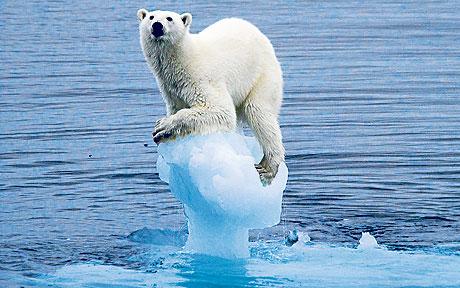Climate change adaptation at local level
- By Wang Binbin
 0 Comment(s)
0 Comment(s) Print
Print E-mail China Daily, April 3, 2014
E-mail China Daily, April 3, 2014
On Monday, the Intergovernmental Panel on Climate Change published the second installment of its Fifth Assessment Report and delivered a strong warning that climate change is already affecting every continent, and that all people are vulnerable to extreme weather events. It also warned water scarcity will worsen as water supplies are being affected by the changes in precipitation, temperature and radiation.
|
|
|
On Monday, the Intergovernmental Panel on Climate Change published the second installment of its Fifth Assessment Report and delivered a strong warning that climate change is already affecting every continent. |
Regarding China's situation, yields of winter wheat, a strain of the grain planted in the fall, could be benefiting from warming temperatures and higher precipitation in places such as the Huang-Huai-Hai Plain, a large alluvial area in northern China with deposits from the Yellow River and Huai Hai. However, yields of rice are projected to decrease in eastern China and elsewhere in Asia.
Climate change is also challenging China's water supplies and this is being exacerbated by the country's growing population, which is increasing the demand for water, particularly in northern China. With population numbers projected to increase and lifestyles shifting, it is not clear how it will be possible for everyone in this country to get enough healthy food and clean water.
It is worth noting that this IPCC report, for the first time, allocated a chapter to the subject of livelihoods and poverty. People in rural areas are heavily dependent on natural resources and directly influenced by changes in weather patterns and climate.
The IPCC report confirmed that governments at all levels are starting to develop adaptation plans and policies. However, particularly in developing countries, there is an enormous funding gap and growing adaptation deficit, that is, poor countries are being affected by extreme weather events to an increasingly high degree of severity compared to rich countries. Oxfam estimates that poor countries received just 2 percent of their adaptation funding needs from rich countries in the three years since the Copenhagen climate summit in 2009.







Go to Forum >>0 Comment(s)